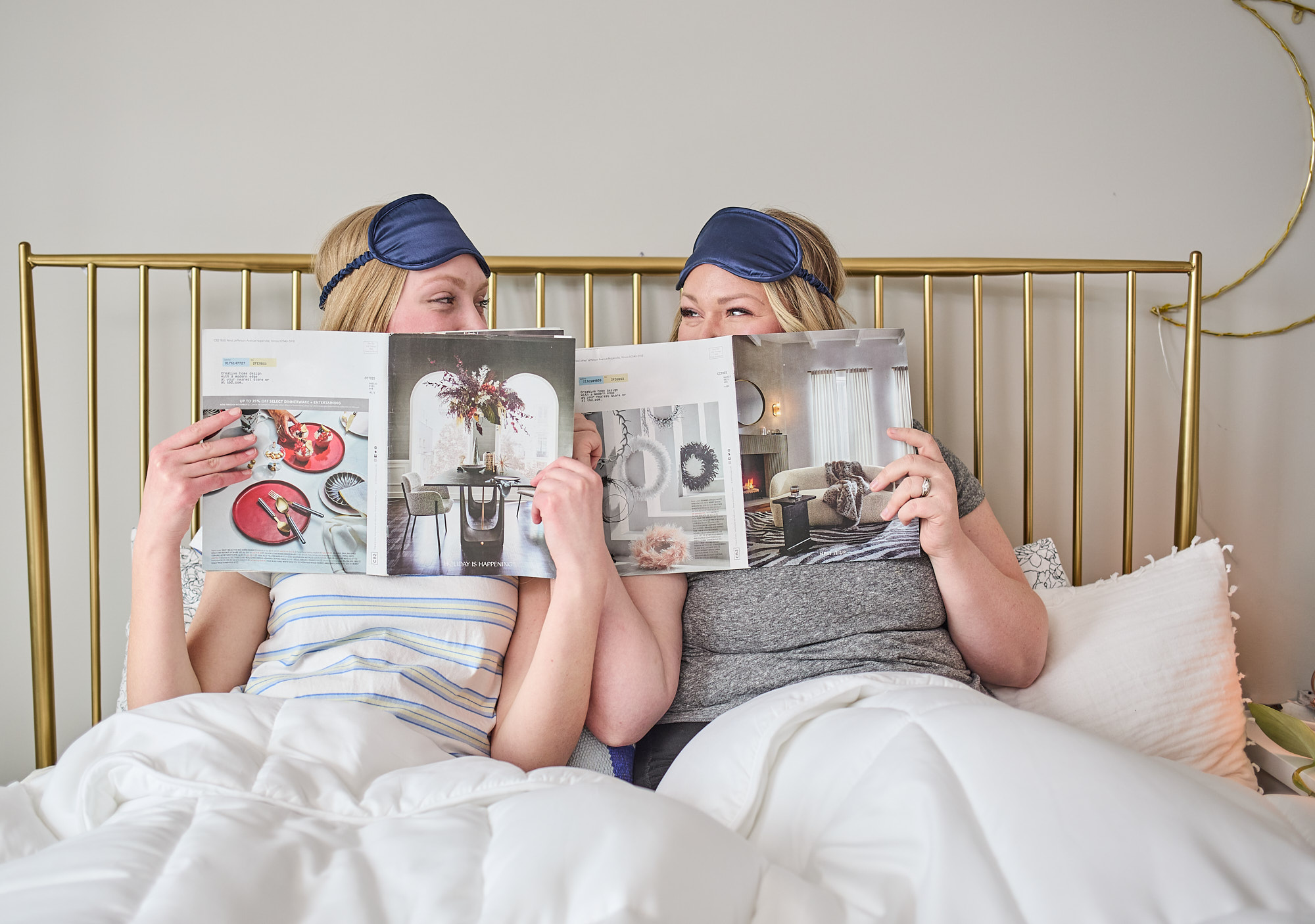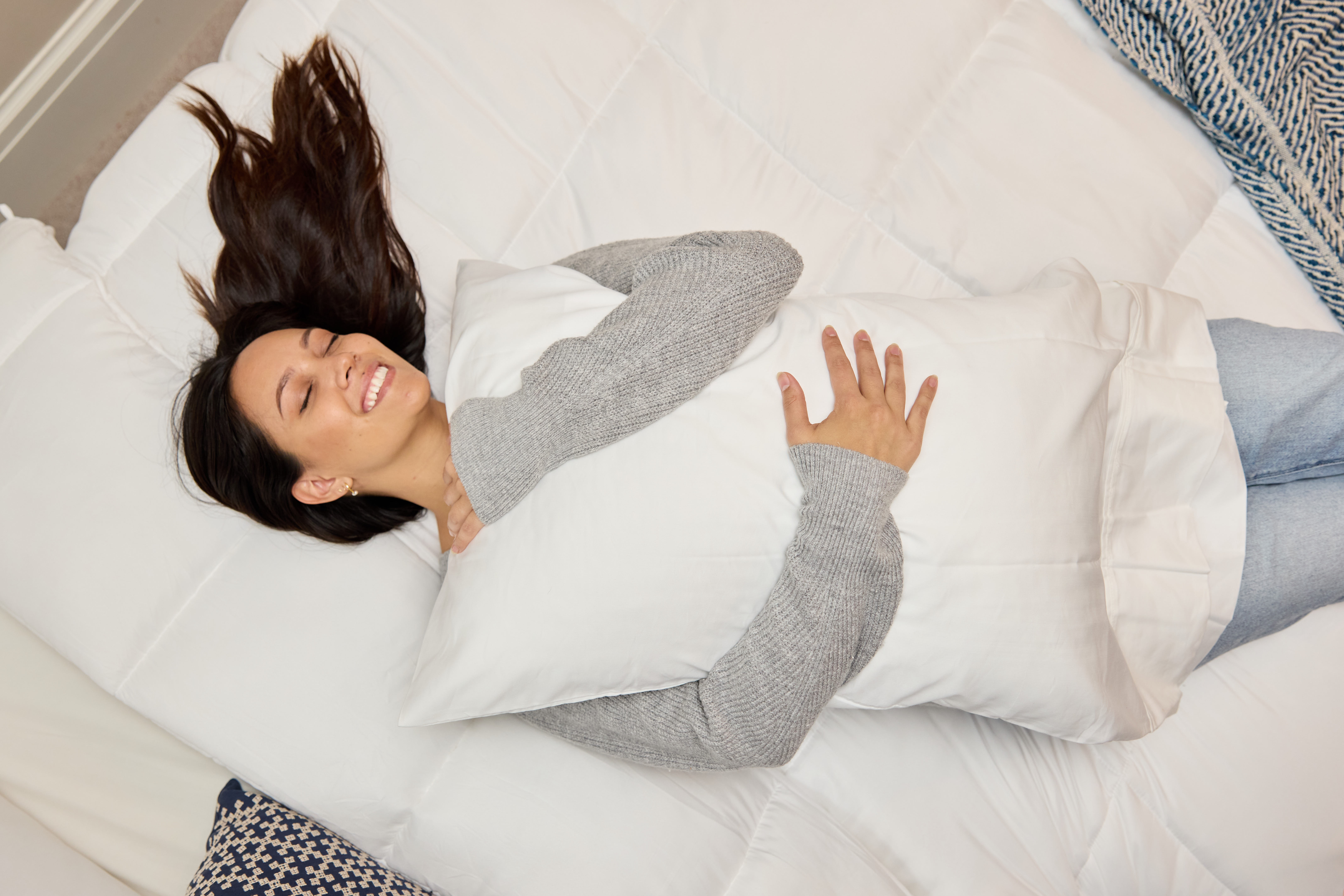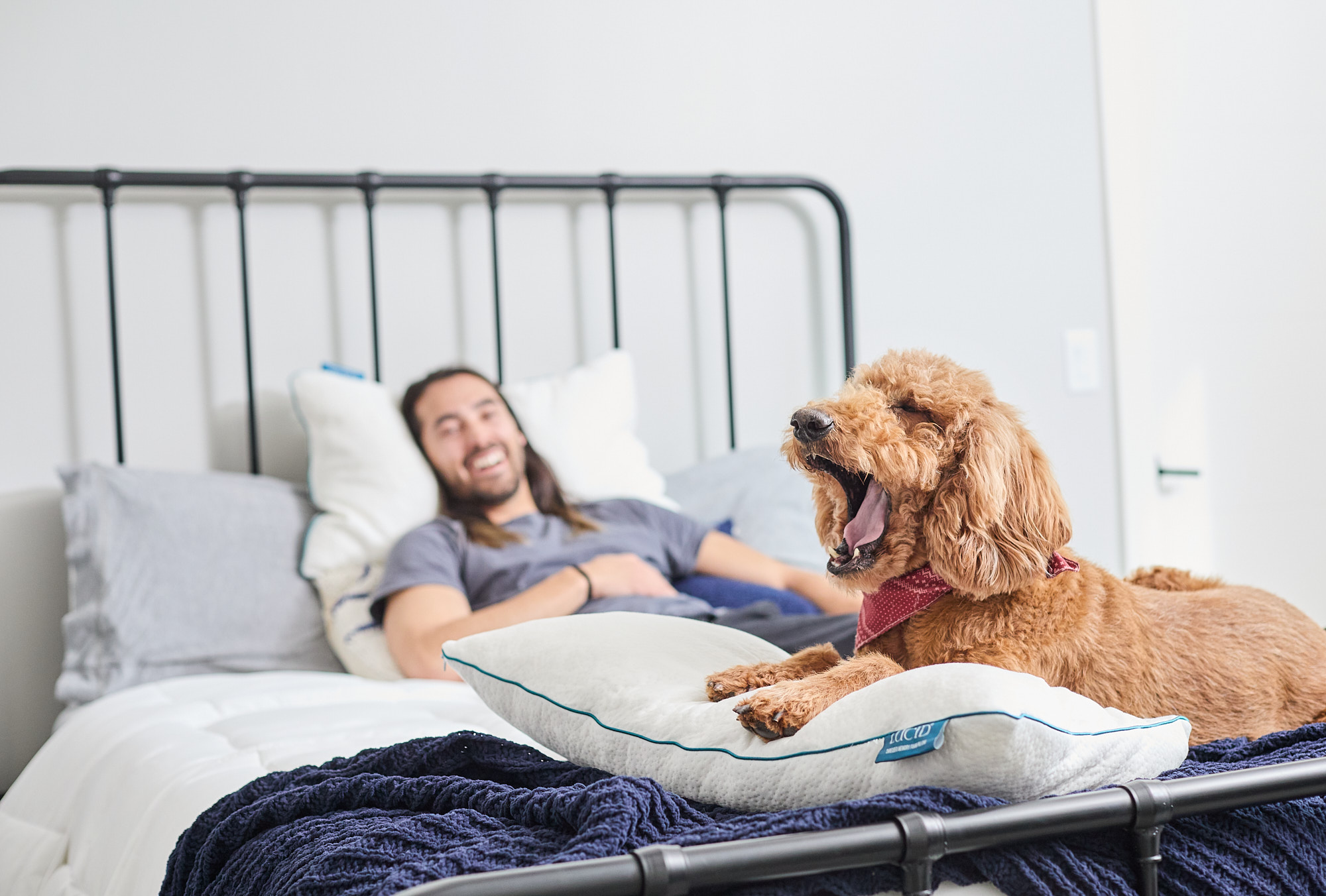Tips to Sleep Better for Sleep Awareness Week
It’s Sleep Awareness Week! Started by the National Sleep Foundation (NSF) 25 years ago, Sleep Awareness Week is always celebrated at the start of Daylight Saving Time. This year, Sleep Awareness Week is March 12-18, and we are excited to take part in this educational campaign for sleep health. We know that good sleep is at the heart of good health and overall well-being. We know quality sleep is the key to living a quality life. We know the way we sleep affects the way we feel throughout the day. Because we know the importance of good, quality sleep, we want to help you rejuvenate your life with better sleep. We’ve gathered a few of our favorite sleep tips and products to help you get better sleep and enhance your life.
- Stick to a regular sleep schedule.
Go to bed and wake up at the same time each day to maintain your natural circadian rhythm. -
Create a relaxing bedtime routine.
Help your body know it’s time to prepare for sleep by creating a relaxing bedtime routine.
- Optimize your bedroom for sleep.
For your best sleep, make sure your bedroom is cool, dark, and quiet, with comfortable bedding options. - Avoid caffeine, nicotine, and alcohol close to bedtime.
These substances can interfere with sleep. If you consume them, it is best to avoid doing so close to bedtime. - Make sure you have the right mattress.
Make sure you have the right mattress for your sleep style. Stomach sleepers should sleep on a more firm, supportive mattress like our latex hybrid mattress. Back sleepers should sleep on a plush and supportive mattress like our memory foam hybrid mattress. And side sleepers should sleep on a very plush mattress like our 14 inch memory foam mattress. - Don't eat large meals or spicy foods before bed.
Large meals and spicy foods can cause indigestion that makes it difficult to fall asleep.
- Limit long daytime naps.
Napping during the day throws off your sleep schedule so avoid naps, especially in the late afternoon or evening, for your best sleep. - Avoid vigorous activity close to bedtime.
Regular exercise can help promote good sleep, but exercising close to bedtime can give you energy that keeps you awake. - Find the right pillow.
Make sure you are using a comfortable and supportive pillow that supports your sleep style. Stomach sleepers should try a thin, responsive pillow, back sleepers should try this versatile mid-loft pillow, and side sleepers should use a supportive high-loft pillow. - Avoid using electronic devices right before bed.
The blue light from smartphones or tablets tricks your brain into thinking it is still daytime and keeps you from falling asleep. - Practice deep breathing or meditation.

Relaxation techniques like reading a book, taking a hot bath, visualization, deep breathing, and meditation help improve sleep quality and reduce insomnia. - Elevate your sleep with an adjustable bed frame.
Sleeping with your head and feet slightly elevated on an adjustable bed base can help reduce snoring, improve circulation, and relieve pressure on your back and neck. - Use a white noise machine.
A white noise machine, earplugs, or even a fan can help block out noise and promote a peaceful sleep environment. - Avoid watching TV or working in bed
Your bed is where you sleep, keep it a peaceful place by avoiding watching tv or working in bed. Doing these things right before bed also makes it harder to fall asleep. - Keep pets out of the bed.
We all love our pets but for the best uninterrupted sleep, keep your pets and all their movements and sounds out of your bed while you sleep. - Invest in blackout curtains or a sleep mask.

Block out excess light and get more restful sleep with blackout curtains or a sleep mask. - Make sure you have comfortable sleepwear.
Lightweight, breathable fabrics that allow free movement will help you fall asleep faster and stay asleep longer. - Avoid looking at the clock during the night.
Checking a watch or alarm clock in the middle of the night can increase anxiety and make it more difficult to fall back asleep. - Use aromatherapy.
A lavender essential oil, like the one in our lavender infused pillow, can help promote relaxation and soothe you to sleep. - Use a journal to clear your mind before bed.

This may seem counter-intuitive, but jot down any worries or concerns before bed to help clear your mind and reduce stress. - Talk to your healthcare provider about persistent sleep issues.
If you're struggling with persistent sleep problems, talk with your primary care physician who can help identify any underlying issues and recommend appropriate treatment.
